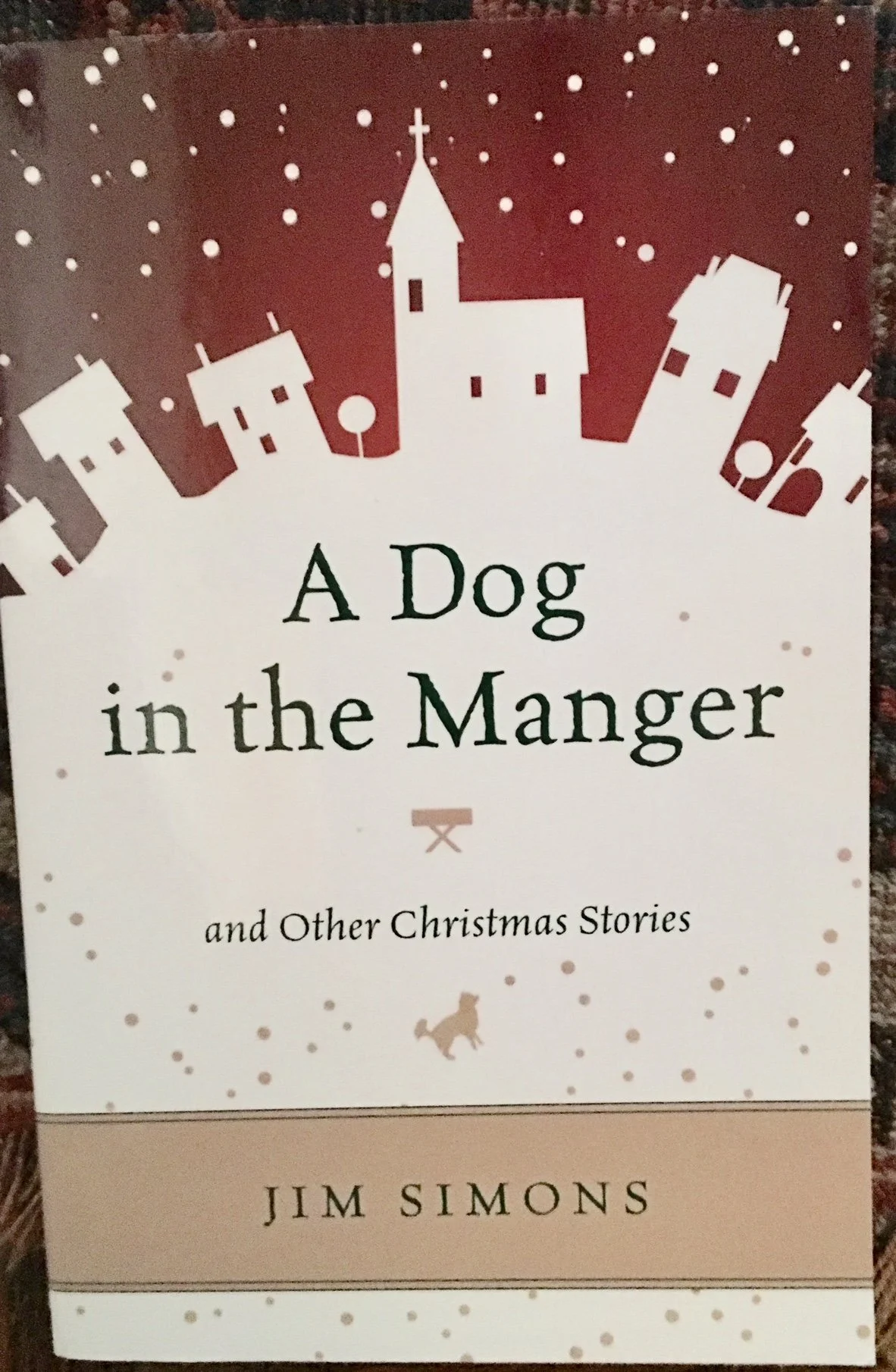A Dog in the Manger
“’I want to put Jesus in the manger!”
You did it last year. It’s my turn.”
No, I’m the oldest, I get to do it.”
Well, I’m the youngest, I think I should!”
Maggie grabbed the figure from Jack and accidentally dropped it face down on the hard floor.
“Now you’ve done it,” cried Jack.”’—Jim Simons, A Dog in the Manger and other Christmas Stories (Rowman and Littlefield 2015) p 1.
Jim Simons is an Episcopal priest who decides to write and tell a story for his Christmas Eve sermon every year, which eventually now births into this collection of Christmas sermons called A Dog in the Manger. Simons reminds us that Jesus tells stories, and the birth narratives consist of two different stories told by two authors, Luke and Matthew. He reminds us that the Christmas season is a particular time to tell stories about our roots, our parents and grandparents, and our early life.
Simon’s stories are entertaining, with a deep and meaningful message of hope that Jesus’ birth brings, signifying the deep love of God for each of us. The stories are fiction, but no doubt have come from his life experiences. The book’s title comes from the first story about a puppy whose passion becomes going around town, bringing back home to his new owner all the baby Jesuses from outdoor nativity displays.
I bought the book a few years ago when I was preaching more often, looking for material for sermons for the Christmas season. I often preach about Christmas pageants, because I have been involved in so many. At least half of Simons’ stories are related to these dramas that consistently add new and unexpected incarnational wisdom to Christmas.
This past year, I have been reading many spiritual nonfiction writings in preparation for this book and two others. As Advent approaches, I know I have been hungry simply for stories, and serendipitously this book appears in my stack for the Christmas season. My goal has been to read at least one story or at least half a story a day, but most days, I find myself unable to put the book down. Indeed, perhaps one factor for this craving has been the months I have put reading fiction on hold. A Dog in the Manger is precisely what I needed at the beginning of this liturgical year. I will share it with you if, by chance, you hear a similar call.
Joanna. https://www.joannaseibert.com/
Book Signing St. Mark’s, Sunday December 4th
After 8 and 10:30 service
Letters from my Grandfather: A History of Two Decades of Unconditional Love. by Joanna Seibert
A pediatric physician, an Episcopal deacon, a mother, grandmother, and author of ten other books on spirituality, shares letters from her grandfather after she left home. She responds to his letters in the present time, giving insight into two decades of unconditional love. $20 all proceeds go to Camp Mitchell.
Advance Praise. Letters from my Grandfather: A History of Two Decades of Unconditional Love.
I love this book, which began as a collection but became a correspondence. Dr. Joanna Seibert, a distinguished Professor (and practitioner) of Pediatric Radiology at Arkansas Children’s Hospital, had treasured a fourteen-year stream of letters from her grandfather and saved them all for more than sixty years. Lately, she decided to publish them, so that her own five grandchildren, among others, might someday enjoy and profit from them. Joanna’s re-reading of the letters now prompted fresh reflections, resulting in her writing a new reply for each epistle (there were sixty-six)! Both sets ––his to her back then, and hers to him this year–– are picturesque and full of detail in the lives that each of them has led. The yield to us is two biographies, his and hers: from one side, a World War I soldier, born in 1888, a Southern Baptist who made his living repairing watches in a one-man shop; and from the other, his beloved grandchild, a distinguished Arkansan on the leading cusp of the women’s movement, who taught and practiced medicine through a time of rapid change in that––and, it has often felt, in everything. He knew life in 1888, she in 2022. So here they are writing forth and back across that historical divide––and breathing gratitude and love on every page. Three times, Joanna says, in three different ways, “you saved my life.” But, above it all, “you taught me how to love.” She wants to pass it on.
The Rev. Dr. Christoph Keller, III

